ABOUT THE DEPARTMENT
The Department of Geography had started its journey in the year of 2013. Consecutively, honours class was introduced in 2017. At present, it has 4 faculty members and around 54 students who are approaching towards their Bachelor’s degree. The Department of Geography strives to develop a questioning mind, make learning a pleasure, and prepare the students for placement. The department aims at directing students to higher academics or professional courses.
The curriculum involves writing papers, conducting exhibitions, tutorials, fieldwork, and participation in household surveys, practical and map-making methods. Both theoretical knowledge and practical skills are imparted through use of modern ICT, supplemented by field excursions to geographically significant locations. Knowledge of Remote Sensing and Geographical Information System (GIS) mapping has high demand employability.
Courses offered:
Courses offered by the Geography Department include 3 years Honours Degree Course and the 3 years General Degree Course.
Our Vision:
To be the leading Geography department among the colleges of North Bengal University. To become the torchbearer towards creative, cutting-edge research that defines the evolving discipline and fuels the education systems.
Our Mission:
Commitment to undergraduate students to provide a learning environment that fosters knowledge, skills and experiences that prepare them for life in an ever-changing world, and engages, inspires and challenges them to become informed global citizens.

Assistant Professor
View Profile
Assistant Professor
View Profile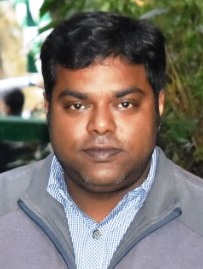
State Aided College Teacher
View Profile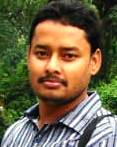
State Aided College Teacher
View ProfileNOTICE
Department of Geography
DATE |
SUBJECT |
|---|---|
11.11.2022 |
NOTICE FOR COMMENCEMENT OF EXAMINATION |
02.09.2022 |
NOTICE FOR INTERNAL EXAMINATION |
25.02.2022 |
NOTICE FOR 1ST SEM INTERNAL EXAMINATIONS |
18.02.2022 |
NOTICE FOR SUBMIOSSION OF LABORATORY NOTE BOOK |
03.02.2022 |
NOTICE FOR PRACTICAL EXAMINATION |
25.02.2022 |
NOTICE FOR PRACTICAL EXAMINATIONS |
4TH & 5TH OCT, 2021 |
NOTICE FOR DEPARTMENTAL WEBINAR |
July, 2021 |
NOTICE FOR PRACTICAL EXAMINATION |
July, 2021 |
NOTICE FOR UPDATED EXAMINATIONS |
............................. |
NOTICE FOR GOOGLE FORM LINK FOR SUBMIOSSION OF ANSWER SRIPTS |
Course Offered: This Department offers
PROGRAMME OUTCOME
Geography is the study of places and the relationships between people and their environments. Geographers explore both the physical properties of Earth’s surface and the human societies spread across it. They also examine how human culture interacts with the natural environment and the way those locations and places can have an impact on people. Geography seeks to understand where things are found, why they are there, and how they develop and change over time. The study of the diverse environments, places, and spaces of Earth’s surface and their interactions. It seeks to answer the questions of why things are as they are where they are. The modern academic discipline of geography is rooted in ancient practice, concerned with the characteristics of places, in particular their natural environments and peoples, as well as the relations between the two. |
COURSE OUTCOME
Course Outcome (Honours) CC1-01PR (Geotectonics)
Course Outcome (Programme Course) Course Code: GEO-P-CC-1-01-PR: Practical (Physical Geography)
Course Outcome (GE) COURSE CODE: GEO-GE-01-TH PHYSICAL GEOGRAPHY
|
List of Pass Out Students-2022
|
Sl. No. |
NAME | Email Address | GENDER |
CATEGORY/RESERVATION |
| 1 | Bikram Roy | [email protected] | MALE | SC |
| 2 | Labani Bhowmik | [email protected] | FEMALE | SC |
| 3 | Bhaskar Biswas | [email protected] | MALE | SC |
| 4 | Rimi Roy | [email protected] | FEMALE | SC |
| 5 | Biswajit roy | [email protected] | MALE | SC |
| 6 | Bidyut mondal | [email protected] | MALE | SC |
| 7 | Bikram roy | [email protected] | MALE | SC |
| 8 | RINITA DAS | [email protected] | FEMALE | OBC-B |
| 9 | Jahira Banu | [email protected] | FEMALE | OBC-A |
| 10 | Roshan Lama | [email protected] | MALE | UNRESERVED |
| 11 | Jeet saha | [email protected] | MALE | UNRESERVED |
| 12 | Shibani Roy | [email protected] | FEMALE | SC |
| 13 | Rahul Ahamed | [email protected] | MALE | OBC-A |
| 14 | Raju Hossain | [email protected] | MALE | OBC-A |
| 15 | Subrata Roy | [email protected] | MALE | SC |
1st Semester Honours
|
Sl.No |
Name of the student | Gender | Email ID | Program name |
Year of joining |
| 1 | Srabani Sarkar | Female | [email protected] | Honours | 2022 |
| 2 | Jhumpa Roy | Female | [email protected] | Honours | 2022 |
| 3 | Mita Bhowmik | Female | [email protected] | Honours | 2022 |
| 4 | Taniya Roy | Female | [email protected] | Honours | 2022 |
| 5 | Rinku Adhikary | Female | [email protected] | Honours | 2022 |
| 6 | Sonali Oraon | Female | [email protected] | Honours | 2022 |
| 7 | Arif Hossain | Male | [email protected] | Honours | 2022 |
| 8 | Titiksha Roy | Female | [email protected] | Honours | 2022 |
| 9 | Sathi Bhowmik | Female | [email protected] | Honours | 2022 |
| 10 | Ripan Barman | Male | [email protected] | Honours | 2022 |
| 11 | Sangita Roy | Female | [email protected] | Honours | 2022 |
| 12 | Rakhi Mandal | Female | [email protected] | Honours | 2022 |
| 13 | Jhumpa Sarkar | Female | [email protected] | Honours | 2022 |
| 14 | Ramkrishna Ghosh | Male | [email protected] | Honours | 2022 |
| 15 | Utshab ch.Roy | Male | [email protected] | Honours | 2022 |
| 16 | Koushik Roy | Male | [email protected] | Honours | 2022 |
| 17 | Sudeb Das | Male | [email protected] | Honours | 2022 |
| 18 | Subhankar Sakhari | Male | [email protected] | Honours | 2022 |
| 19 | Sushanta Oraon | Male | [email protected] | Honours | 2022 |
4th Semester Honours
|
Name of the student |
Gender | Email ID | Program name | Students ID |
Year of joining |
| Riju Das | Male | [email protected] | Geography honours | 120210094148 | 2021 |
| Manab Sarkar | Male | [email protected] | Geography honours | 120210093695 | 2021 |
| Suhan Sen | Male | [email protected] | Geography honours | 120210091828 | 2021 |
| Pijush Dutta | Male | [email protected] | Geography honours | 120210096868 | 2021 |
| Raaz Dhar | Male | [email protected] | Geography honours | 120210096862 | 2021 |
| Manisha Bhowmik | Female | [email protected] | Geography honours | 120210093819 | 2021 |
| Anindita Mallick | Female | [email protected] | Geography honours | 120210093268 | 2021 |
| Rini Das | Female | [email protected] | Geography honours | 120210094497 | 2021 |
| Banasree Barman | Female | [email protected] | Geography honours | 120210096161 | 2021 |
| Bikram Roy | Male | [email protected] | Geography honours | 120210092073 | 2021 |
| Sanju Kumari | Female | [email protected] | Geography honours | 12021009 | 2021 |
| Ripa Das | Female | [email protected] | Geography honours | 120210096940 | 2021 |
| Sonali begam | female | [email protected] | Geography honours | 120210090780 | 2021 |
| Jahida parvin | female | [email protected] | Geography honours | 120210091358 | 2021 |
| Asma parvin | female | [email protected] | Geography honours | 120210090067 | 2021 |
| Protyusha roy | female | [email protected] | Geography honours | 120210095785 | 2021 |
6th Semester Honours
|
SL. No. |
Name of the student | Gender | Email ID | Program name | Students ID |
Year of joining |
| 1 | Tapash sarkar | Male | [email protected] | Geography honours | 20200095471 | 2020 |
| 2 | Samit ch saha | Male | [email protected] | Geography honours | 20200093533 | 2020 |
| 3 | Kakali barman | Female | [email protected] | Geography Honours | 20200092406 | 2020 |
| 4 | Deep Pal | Male | [email protected] | Geography Honours | 20200092121 | 2020 |
| 5 | Dharmistha roy | Female | [email protected] | Geography Honours | 20200095524 | 2020 |
| 6 | Manoj Dey | Male | [email protected] | Geography Honours | 20200091979 | 2020 |
| 7 | Anindita roy kayet | Female | [email protected] | Geography Honours | 20200092850 | 2020 |
| 8 | Reshmi Parvin | Female | [email protected] | Geography Honours | 20200092958 | 2020 |
| 9 | Piyali Ghosh | Female | [email protected] | Geography Honours | 20200092702 | 2020 |
| 10 | Kaushik Roy | Male | [email protected] | Geography Honours | 20200093025 | 2020 |
| 11 | Aditya Roy | Male | [email protected] | Geography Honours | 20200092723 | 2020 |
| 12 | Soumik Sarkar | Male | [email protected] | Geography Honours | 20200095551 | 2020 |
| 13 | Rishita paul | Female | [email protected] | Geography honours | 20200091874 | 2020 |
| 14 | Arpita saha | Female | [email protected] | Geography Honours | 20200092513 | 2020 |
| 15 | Nilay sarkar | Male | [email protected] | Geography Honours | 20200092059 | 2020 |
| 16 | Ratan barman | Male | [email protected] | Geography Honours | 20190090494 | 2019 |
STUDENT'S PROGRESSION LIST: 2022
| Name of student enrolling into higher education | Program graduated from | Name of institution joined |
Name of programme admitted to |
| Jahira Banu | Sukanta Mahavidyalaya | Baikuntha College of Education | B.Ed. |
| Rahul Ahamed | Sukanta Mahavidyalaya | Elias Chowdhury Aademy | B.Ed. |
| Raju Hossain | Sukanta Mahavidyalaya | Elias Chowdhury Aademy | B.Ed. |
| Subrata Roy | Sukanta Mahavidyalaya | Alijur Rahaman College of Education | B. Ed. |
| Bhaskar Biswas | Sukanta Mahavidyalaya | Manaranjan Saha Memorial B.Ed. College | B. Ed. |
| Bidyut Mondal | Sukanta Mahavidyalaya | Rabindra Bharati University | M.A. |
| Jeet Saha | Sukanta Mahavidyalaya | Elias Chowdhury Aademy | B.Ed. |
| Labani Bhowmik | Sukanta Mahavidyalaya | Diamond Harbour Women’s University | M.A. |
| Rimi Roy | Sukanta Mahavidyalaya | University of North Bengal | M.A. |
| Samayita Saha | Sukanta Mahavidyalaya | N.B.S. College of Education | B. Ed. |
| Shibani Roy | Sukanta Mahavidyalaya | University of North Bengal | M.A. |
STUDENT'S PROGRESSION LIST: 2021
| Program graduated from | Name of institution joined |
Name of programme admitted to |
|
| Nabanita Bashak | 2021 | University of North Bengal | M.A. |
| Sigma Dutta | 2021 | University of North Bengal | M.A. |
| Jhilam Das | 2021 | Techno India Teachers Training Institute,Falakata | B.ed |
| Gourav Basak | 2021 | Prabharani B.ed College , Murshidabad | B.ed |
| Raju Das | 2021 | Prabharani B.ed College , Murshidabad | B.ed |
| Ramen Roy | 2021 | Mekhliganj PTTI College | B.ed |
| Trisha Dey | 2021 | Dhupguri D.Ed College | B.ed |
| Samayita Saha | 2021 | A.C. B.Ed. College, Jalpaiguri | B.ed |
STUDENT'S PROGRESSION LIST: 2020
|
Sl. No |
Students Name | Course |
Name of the Institute |
| 1 | Amit Debnath | B.ed | Prabharani Institute of Education , Murshidabad |
| 2 | Arijit Biswas | Nursing | SB GROUP OF NURSING , KARNATAKA |
| 3 | Dulal Sarkar | M.A/M.Sc | North Bengal University |
| 4 | Sumana Barman | Nursing | VARADARAJA SCHOOL OF NURSING , KARNAKATA |
| 5 | Soma Roy | LLB | University of Burdwan , West Bengal |
| 6 | Baisali Sarkar | Nursing | ASIA HEART FOUDATION , KOLKATA |
Academic Resources provided by Prof. Carol Christine Lepcha:
Academic Resources provided by Dr. Debdip Bhattacharjee:
Academic Resources provided by Prof. Arghya Sur:
Academic Resources provided by Prof. Arun Das:
Study Materials:
Dr. Debdip Bhattacharjee
2nd Semester (H):
https://classroom.google.com/
2nd Semester (G):
https://classroom.google.com/
4th Semester (H):
https://classroom.google.com/
4th Semester (G):
https://classroom.google.com/
6th Semester (H):
https://classroom.google.com/
6th Semester (G):
https://classroom.google.com/
Prof. Carol Christine Lepcha
2nd Semester (H):
https://classroom.google.com/
2nd Semester (G):
https://classroom.google.com/
4th Semester (H):
https://classroom.google.com/
4th Semester (G):
https://classroom.google.com/
6th Semester (H):
https://classroom.google.com/
6th Semester (G):
https://classroom.google.com/
PERSONAL YOUTUBE LECTURE LINKS
1. POLAR ZENITHAL STEREOGRAPHIC PROJECTION
https://youtu.be/UrW53MrlqMU
2. POLAR ZENITHAL GNOMONIC PROJECTION
https://youtu.be/lKwRGrGq4p4
3. GEOREFERENCING A RASTER IMAGE USING Q GIS PLATFORM
https://youtu.be/n3NS2QsrVfE
4. HOW TO DOWNLOAD & INSTALL QGIS SOFTWARE
https://youtu.be/aXkrFCUUiOY
ACTIVITIES
Department of Geography
SUBJECT |
|---|
| Special lecture on "Colonial Cartography in the Indian subcontinent" on 16th February, 2023 |
| Field Survey 09.01.2023-11.01.2023 |
| INTER SEMESTER POSTER COMPETITION |
| FIELD TOUR PELLING SIKKIM-2022 |
| WEBINAR RELATED DOCUMENTS |
| FIELD TOUR SHILLONG-2019 |
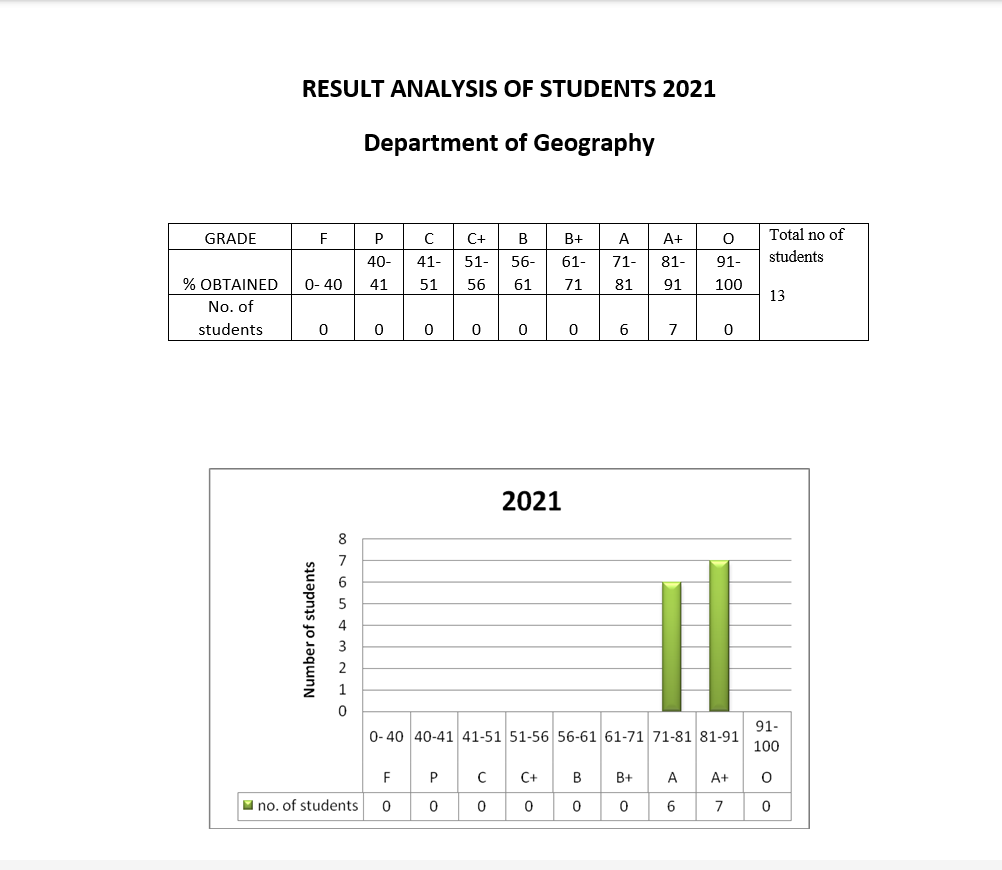
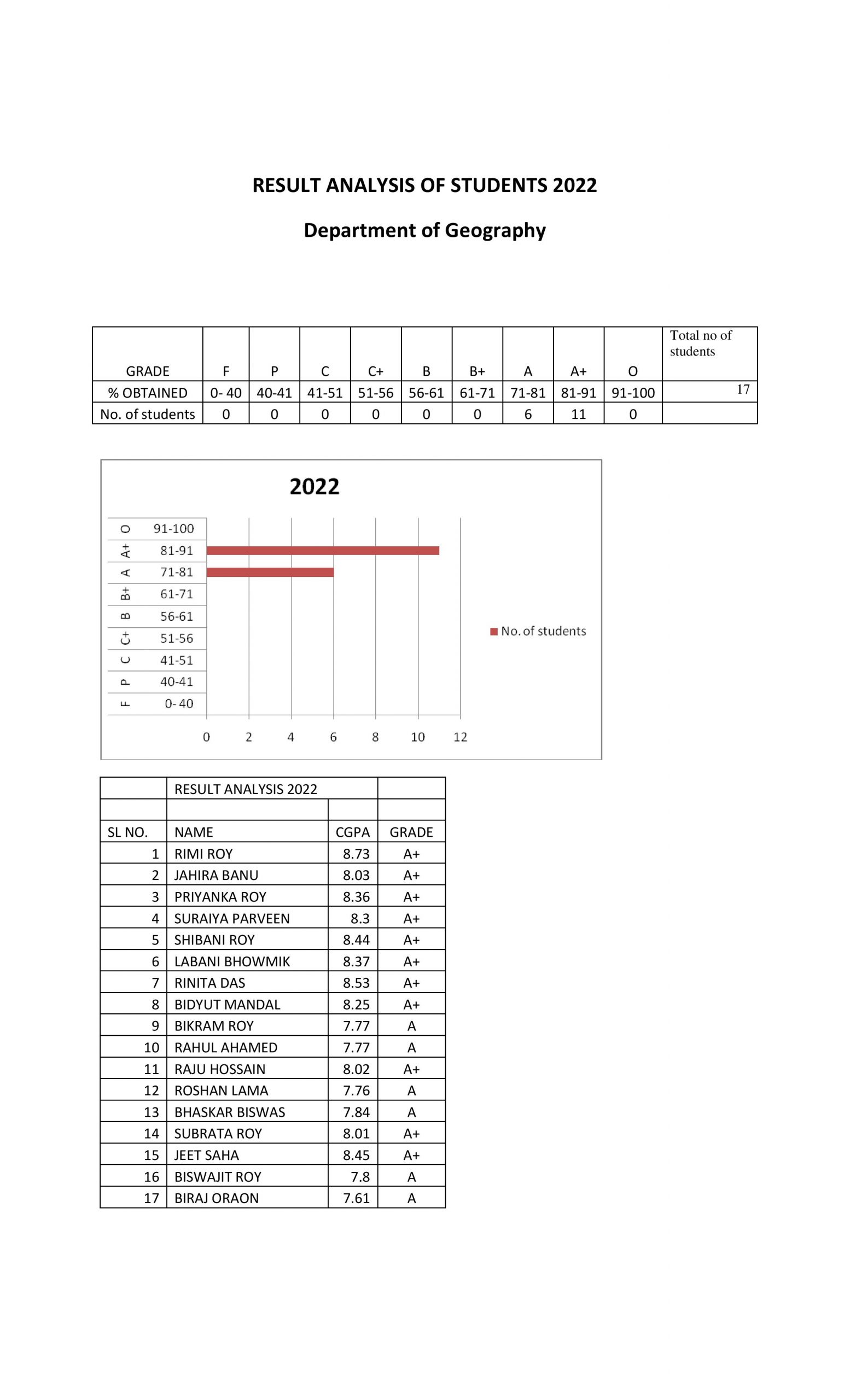
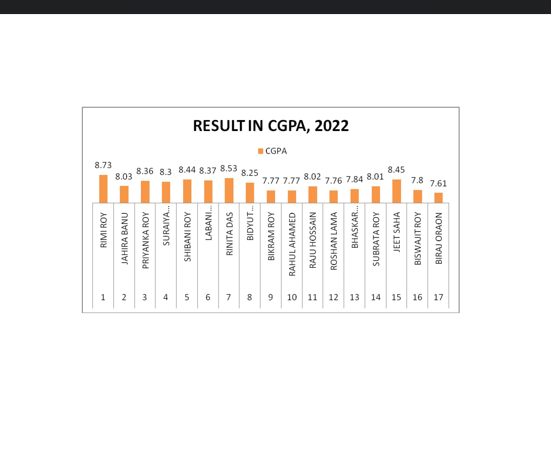
ONLINE EXAMINATION 2022
Sukanta Mahavidyalaya
Department of Geography